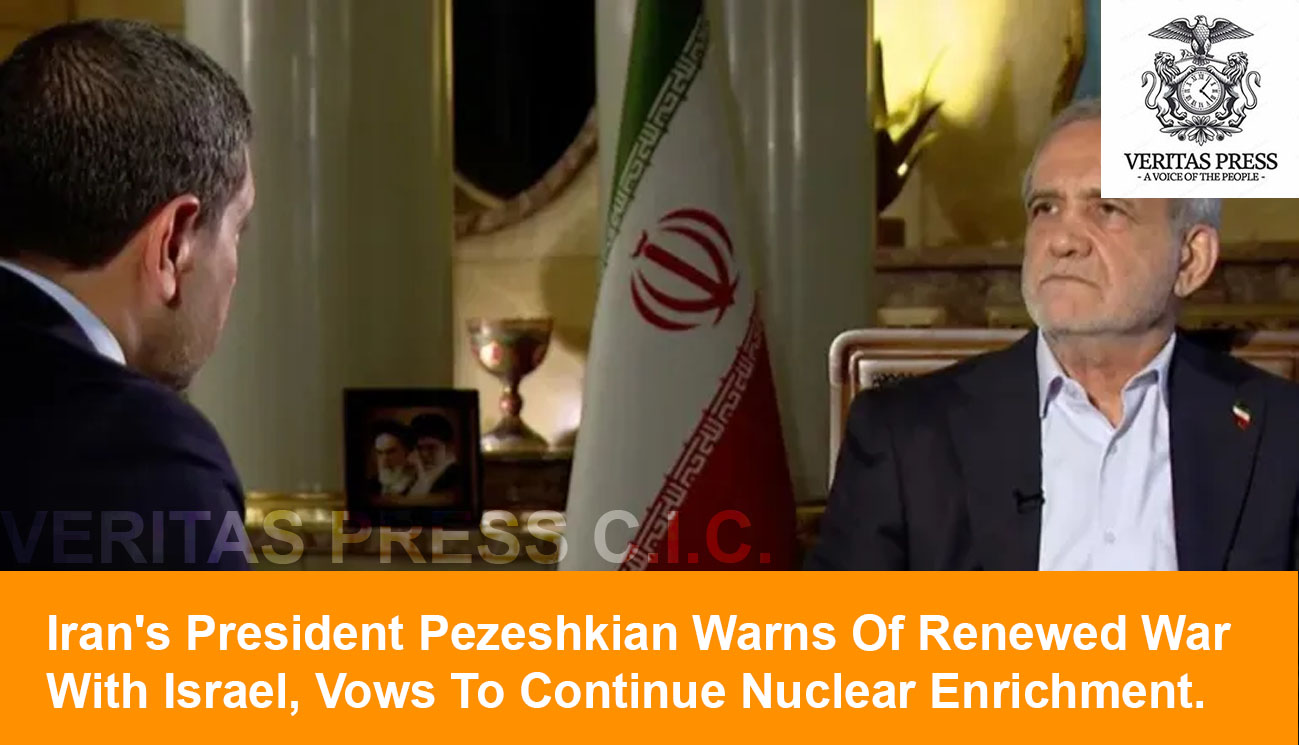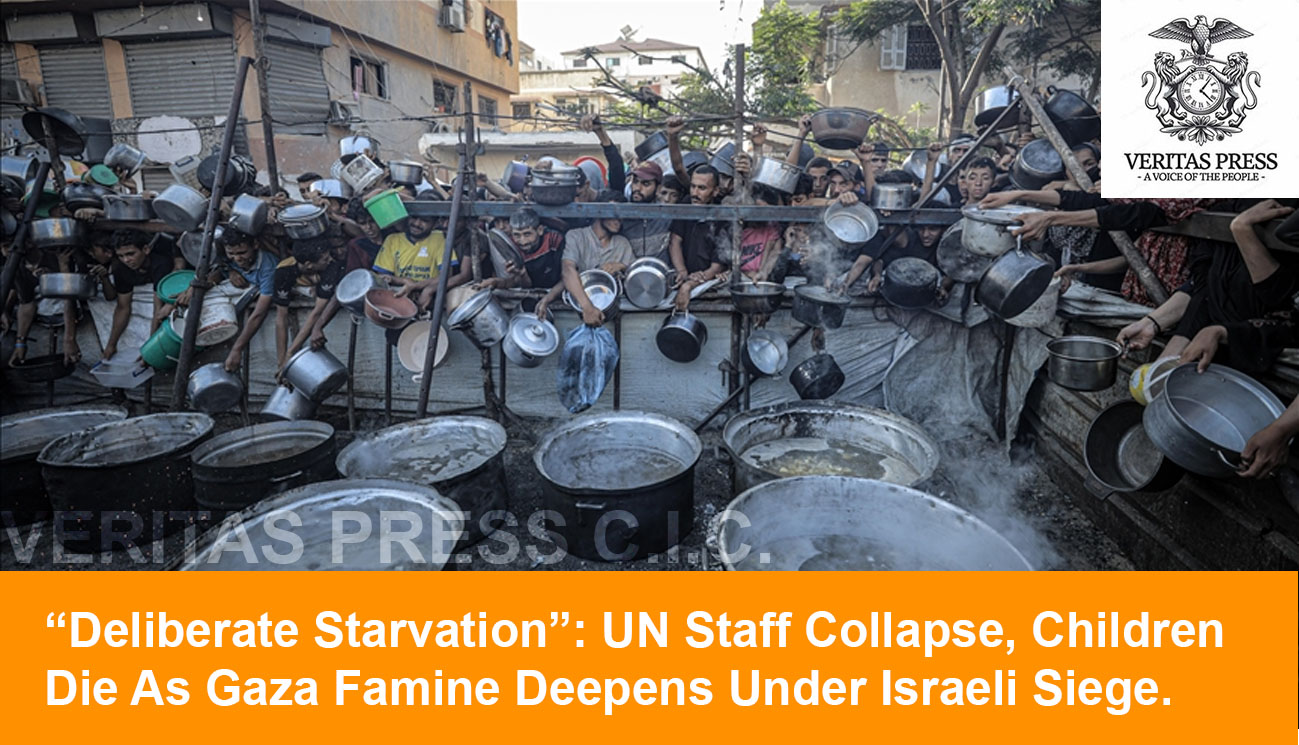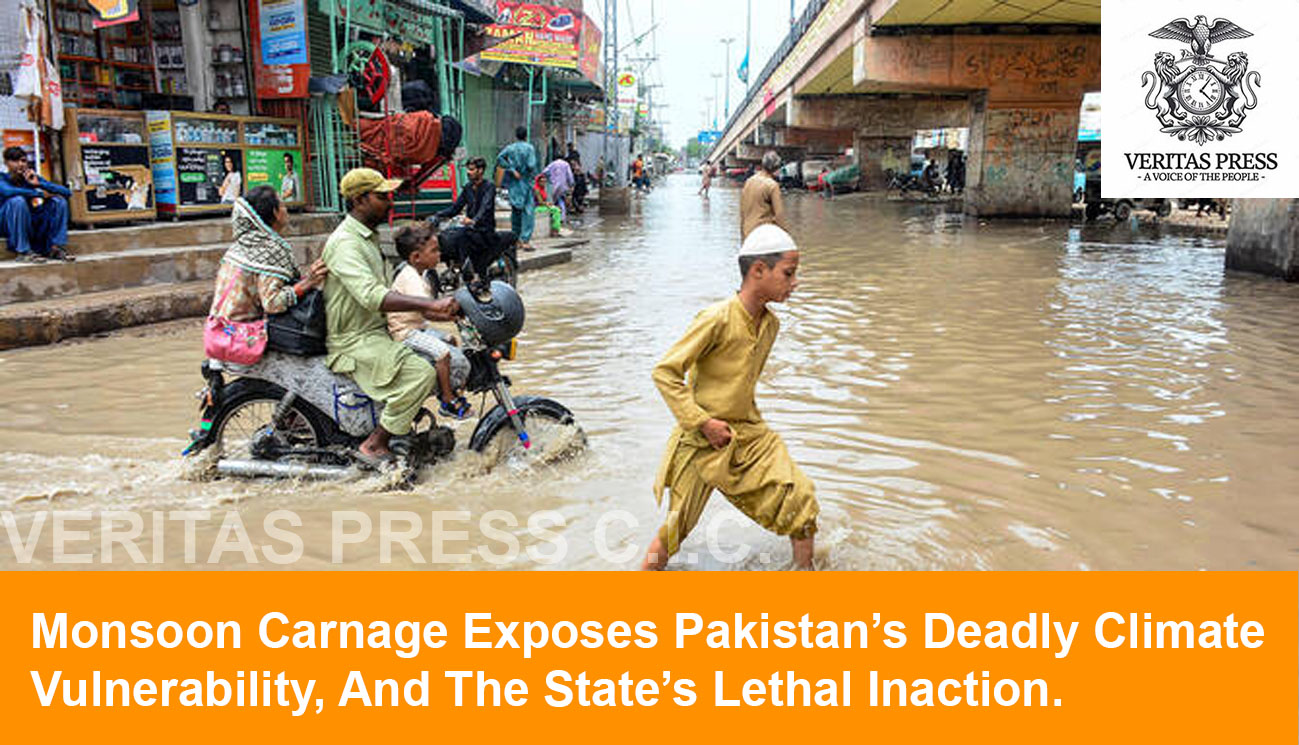TEHRAN – Iranian President Masoud Pezeshkian has issued a stark warning to Israel and the West, declaring that the Islamic Republic is fully prepared for renewed conflict and will continue its uranium enrichment programme “within the framework of international law,” despite mounting Western pressure and recent military escalations.
In his first televised interview since last month’s 12-day war with Israel, Pezeshkian told Al Jazeera that Iran will not be deterred by US or Israeli military threats, and accused Israel of attempting to dismantle the Islamic Republic through assassination, airstrikes, and sabotage, all of which, he claimed, have failed.
“We are fully prepared for any new Israeli military move, and our armed forces are ready to strike deep inside Israel again,” Pezeshkian said. “We are not optimistic about the ceasefire. That is why we have prepared ourselves for any possible scenario. Israel has harmed us, and we have also harmed it.”
The war, which erupted in mid-June and ended in a tenuous ceasefire on June 24, marked the first direct, multi-day military exchange between the two regional powers. Iran launched hundreds of ballistic missiles and drones deep into Israeli territory following Israeli airstrikes that killed high-ranking Iranian military officers and damaged key nuclear infrastructure. More than 900 Iranians, many of them civilians, were killed in the hostilities, while at least 28 Israelis were reported dead.
Israel’s Covert Campaign And Assassination Attempts:
Pezeshkian also confirmed what Iranian officials had previously only hinted at, that he was the target of an Israeli assassination attempt during a high-level meeting of Iran’s Supreme National Security Council on June 15. The attempt reportedly left him with minor injuries.
“Israel’s strategy was to decapitate Iran’s leadership, first the generals, then the political heads, in order to throw the country into chaos and provoke regime collapse,” Pezeshkian told Al Jazeera. “But this strategy has completely failed.”
He emphasised that despite Israeli efforts, Iran’s command structure remains intact and its retaliatory strikes have caused significant, though unacknowledged, damage to Israeli infrastructure and morale.
“Israel is concealing the true extent of its losses,” he said. “It’s request for a ceasefire tells the real story.”
Nuclear Programme To Continue Despite Pressure:
In perhaps his most defiant statement yet, Pezeshkian dismissed claims by US President Donald Trump and Israeli leaders that Iran’s nuclear programme has been “neutralised.”
“Trump says our nuclear programme is over. That is an illusion,” Pezeshkian said. “Our nuclear capability resides in the minds of our scientists, not merely in our facilities. You cannot bomb knowledge.”
He reiterated Iran’s longstanding position that it has no interest in acquiring nuclear weapons, citing religious, humanitarian, and strategic reasons.
“We categorically reject nuclear weapons,” he said. “This has been verified time and again by the International Atomic Energy Agency, which has never found evidence of military diversion.”
Yet Pezeshkian made clear that uranium enrichment will continue on Iranian soil, and that Iran will not bow to international threats.
“We believe in diplomacy, but any negotiations must follow a win-win logic. We will not accept threats, dictates, or unilateral conditions,” he added.
Iranian Foreign Minister Abbas Araghchi echoed this in an interview with Fox News earlier this week, stating that Tehran remains open to a diplomatic resolution, but not one that compromises Iran’s sovereign right to peaceful nuclear energy.
Western Sanctions And European Mediation Efforts:
Following the conflict, the US and European powers renewed calls to curb Iran’s nuclear ambitions. However, new intelligence and satellite analyses suggest that the Israeli and US strikes on Iran’s nuclear infrastructure, including centrifuge halls in Natanz and Fordow, were less effective than initially claimed by Washington.
Iran’s Atomic Energy Organisation is still assessing the extent of the damage and has indicated that it will report its findings to the IAEA. Cooperation with the agency was suspended earlier this month after the Iranian parliament passed a law restricting access in response to the US attacks.
Talks between Iran and European signatories of the 2015 Joint Comprehensive Plan of Action (JCPOA), namely France, Germany, and the UK, are scheduled to resume in Türkiye on Friday. These countries are reportedly pushing for Iran to recommit to enrichment caps and full IAEA monitoring, warning that failure to do so could trigger the automatic reimposition of UN sanctions under the deal’s snapback mechanism.
Iranian officials, however, are sceptical of Europe’s ability to act independently of US pressure.
Strikes On Al Udeid And Regional Repercussions:
One of the most controversial moments of the recent war was Iran’s retaliatory missile strike on the US-operated Al Udeid Air Base in Qatar, which hosts US CENTCOM operations.
Pezeshkian was quick to clarify that the attack was aimed at American forces, not Qatar itself.
“We do not and will not attack the State of Qatar. They are our brothers,” he said, adding that he had personally called Qatar’s Emir Sheikh Tamim bin Hamad Al Thani to explain that Iran’s intention was purely military and retaliatory in nature.
The Iranian president stressed that the conflict had galvanised regional sympathy for Iran, claiming that “never before” had Arab states shown such solidarity during an active conflict.
“This war changed many things. The region now understands the cost of silence in the face of Israeli aggression,” he said.
He also expressed support for forming a new framework for collective regional security, an apparent nod toward de-escalation with Gulf states amid fears of a wider war.
A Fragile Truce, A Growing Crisis:
Despite the current ceasefire, the situation remains highly volatile. Both sides have vowed to respond to any new provocation, and military reinforcements continue to build up across the region.
Inside Israel, the government of Prime Minister Benjamin Netanyahu has remained silent about the extent of Iranian strikes, while right-wing officials demand pre-emptive action. Trump, who is campaigning for re-election, has hinted at more aggressive military and cyber options to “finish the job.”
Meanwhile, Iran continues to portray itself as both victim and regional power, a nation wounded, yet defiant; isolated, yet increasingly assertive.
As Pezeshkian made clear in his interview, Tehran believes that it emerged from the conflict not weakened, but emboldened.
“We have not surrendered. We will not surrender. We are not the ones asking for war, but we are ready for it.”
Advertisements
Tags:





























Leave a Reply